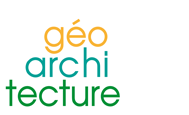Nutritional Composition and Bioactivity of Salicornia europaea L. Plants Grown in Monoculture or Intercropped with Tomato Plants in Salt-Affected Soils
Résumé
The increasing salinization of agricultural soils urges us to find alternative and sustainable farming systems in order to allow the exploitation of areas that are otherwise becoming less suitable for conventional crops. Thanks to their adaptation to extreme saline conditions, halophytes are promising plants for resilient farming systems, such as intercropping with glycophytes, to ameliorate their productivity in saline soils. This research aimed to evaluate whether the nutritional profile and the content of some health-promoting compounds of the edible portion of Salicornia europaea were influenced by its cultivation in consociation with tomato plants. Moreover, the antioxidant, antibacterial, and anti-inflammatory properties of S. europaea were studied to characterize its bioactivity. The farming system did not influence the concentration of nutrients and bioactive compounds, except for flavonoids. The antimicrobial and anti-inflammatory properties of Salicornia extract suggested the importance of this halophyte for animal and human health.
| Origine | Publication financée par une institution |
|---|---|
| licence |



